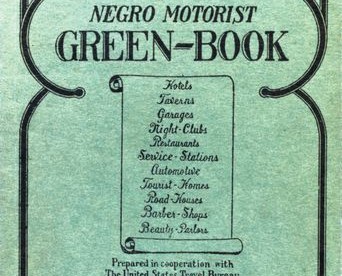The Weekender, July 1, 2016

Crowds on Demand, he [founder Adam Swart] says, serves several clients a week, sometimes a day — most in L.A., San Francisco, and New York but an increasing number in smaller cities like Nashville, Charlotte, and Minneapolis. When people inquire about a potential event, Adam guides them through the possibilities and the approximate costs: $600 for fake paparazzi at a birthday dinner; $3,000 for a flash mob dancing, chanting, and handing out fliers as a PR stunt; $10,000 for a weeklong political demonstration; $25,000 to $50,000 for a prolonged campaign of protests. According to Adam, protests have become the company’s growth sector, and just as with advertising, repeat impressions are key. “When the targets of our actions see that we’re going to be back, day after day, they get really scared,” he says. “We’re in it for the long haul, and the problem’s not going to go away on its own.”
[ . . . ]
A crowd means something matters, that it has value. Bands know they get more buzz from selling out a smaller venue than from having a cavernous space half-full, even if the bigger venue means more people are able to attend. The crowd out on the street who couldn’t get in is an advertisement of the band’s rising fortunes. You know how it goes. You’re on a road trip. You find two Japanese restaurants side by side. One has a dozen customers, and the other is desolate. Which place has better food? No need to check Yelp — just follow the crowd. Accurate or not, its presence tells a story of its own.
2) Become a Now I Know Supporter: Now I Know is supported by readers like you. Please consider becoming a patron by supporting the project on Patreon. Click here to pledge your support.(Also, if you’re a creator and looking to start your own Patreon page, here’s my referral link.)
3) “The tragic tale of Saddam Hussein’s ‘supergun’” (BBC, 13 minutes, March 2016).
[The supergun’s] inventor, Gerald Bull, who was one of the world’s leading artillery experts, had high hopes that it would revolutionise space launches, removing the need for conventional rockets. “Bull was an outstanding scientist and a charismatic figure, and this is the physical reminder of what he did on a monumental scale,” says Nicholas Hall, Keeper of Artillery at the Royal Armouries.
But Big Babylon was never built, and no-one has got close since. So what happened? The answer is a tale of hubris, thwarted ambitions and military secrets. At a time when Bull’s expertise should have been in high demand by all of the world’s superpowers, he chose to make his supergun for Saddam Hussein instead, a decision that would end in murder.
Decades later, tantalising questions remain: could Bull’s supergun idea have worked? And might the idea that died with him ever return?
4) “The Negro Motorist Green Book and Black America’s Perpetual Search For A Home” (The Toast, 41 minutes, June 29, 2016). Yes, this is the same topic that I wrote about on June 28th, and that’s clearly a coincidence. This is an impassioned, personal essay about the Green Book, and well worth the 41 minute investment.
WeekenderAdUnits
5) “Teacher spends two days as a student and is shocked at what she learns” (Washington Post, 8 minutes, October 2014). This is a pretty short read but, in hindsight, the three key takeaways of the teacher are obvious problems — which means they’re probably both actual problems and fixable ones.
6) “Being John” (The Morning News, 14 minutes). Subhead: “When five million people share your name, your Google-ability is miserably low. Will this forever change naming?” I’m one of many, many people named “Dan Lewis” or some variety thereof, so the fact that I typically come up on the first entry on Google is a badge of honor. But yeah, it would suck to be number 384 or so.
Have a great weekend, and have a great 4th of July!

